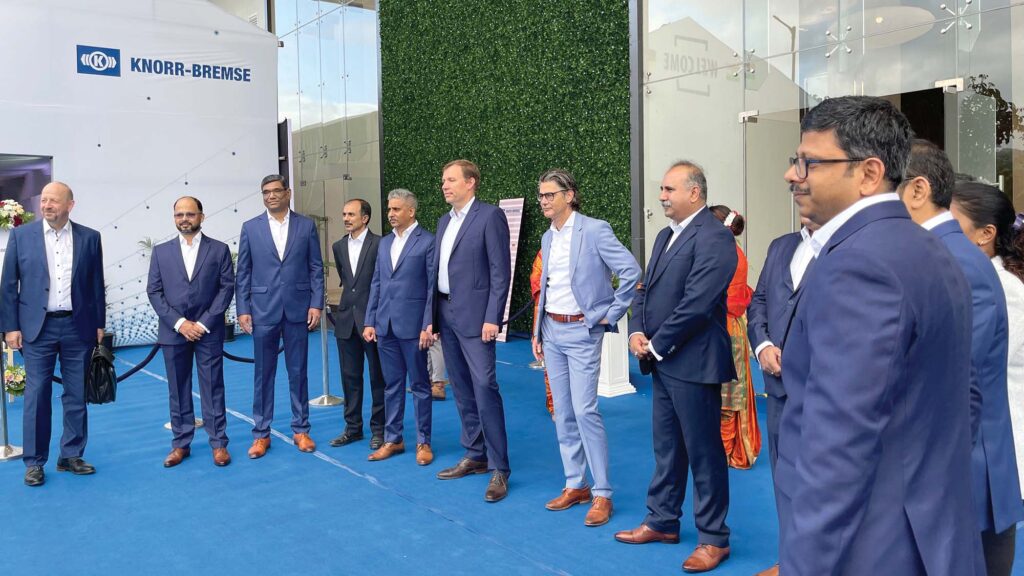Knorr-Bremse is expanding its capacity in India, covering both rail and commercial vehicle sectors. In September, a new building complex was officially inaugurated at the cross-divisional TCI development center in Pune, where some 1,300 experts will work on developing innovative transportation technologies. Key areas include mechanical engineering, hardware and software, IT and simulations.

The Knorr-Bremse Technology Center India (TCI) provides a broad range of R&D, engineering and IT services to Knorr-Bremse Group sites worldwide, making it one of the Group’s key innovation hubs. The latest building project, representing an investment in the upper single-digit million-euro range, is also intended to further strengthen Knorr-Bremse’s position in the Indian marketplace.
Marc Llistosella, CEO of Knorr-Bremse AG, emphasizes: “The expansion of our Technology Center India is a very important investment for Knorr-Bremse. We want to drive growth through our Rail and Truck divisions – both in India, as an emerging mobility market, and in other key markets. As a global development center, the expanded TCI will play a central role in enhancing our business and creating pioneering transportation technologies.”
Arun Bhat, Managing Director of TCI, adds: “The new building will enhance our R&D capacity in terms of both workforce and project volume. Our investment underscores India’s importance as a promising market and a highly attractive engineering and development hub. This will enable us to satisfy complex customer needs and manage the anticipated market growth in India and worldwide.”
Additional Capacity for Research, Development and IT
The extended complex is located near the existing TCI development center, which was founded in 2012 and employs more than 800 people in the heart of Pune’s modern Hinjewadi suburb. Thanks to intensive planning and rapid implementation, the new construction project – launched in May 2023 – was completed in a matter of months. In the future, some 1,300 experts will work here on product development, engineering, hardware and software, IT, simulations and virtual testing. They will play an important role in driving forward the Group’s core innovation and development activities in key areas such as next-generation train and truck braking systems.
Sustainable Building Design
The new complex conforms to Green Building standards, and its energy-saving design will contribute to the site’s climate neutrality – hence also to Knorr-Bremse’s Climate Strategy 2030. In line with the Paris Climate Accord, key strategic targets include reducing the Group’s production-related carbon emissions (Scopes 1 and 2) by 75% compared with baseline year 2018. Among other efficiency-enhancing measures, a large proportion of the new site’s energy requirements will be covered by solar power generated by roof-mounted panels.